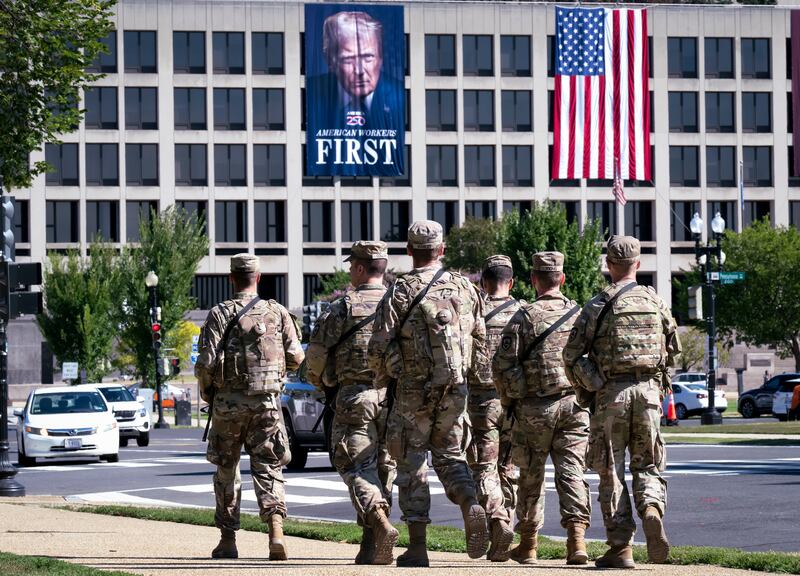Trump Defies Court Ruling, Sends National Guard to Chicago
President Trump announced plans to deploy National Guard troops to Chicago, defying local opposition and a recent federal court ruling against such military use for domestic law enforcement.

President Donald Trump declared Tuesday that he would send National Guard troops to Chicago, escalating a standoff with Illinois officials and defying a recent federal court ruling that found his previous deployment of the Guard to Los Angeles violated the law. The announcement coincides with preparations for large-scale immigration enforcement operations in Chicago, drawing widespread condemnation from local leaders, civil rights groups, and legal experts.
Legal and Political Fallout
Illinois Governor JB Pritzker and Chicago Mayor Brandon Johnson swiftly denounced the move, calling it both unnecessary and illegal. Pritzker stated, “No, I will not call the president asking him to send troops to Chicago,” and described Trump’s comments as "unhinged." The governor and other Illinois officials referenced the federal judge’s ruling that the president had unlawfully ordered National Guard troops and Marines to engage in law enforcement activities in Los Angeles, warning that similar actions in Chicago would be met with legal resistance. Congressional leaders from Illinois sent a letter to Trump demanding he suspend any plans for military deployment, stating, "The deployment of the U.S. military into American cities is not about safety or security. It is about control... We demand you suspend any plans for the deployment of military personnel to Chicago and cease your unlawful power grabs and Executive Branch overreach." Local activists announced plans for peaceful protests when the Guard arrives.
Immigration Raids and Federal Staging
The deployment is intertwined with a surge in federal immigration enforcement. Homeland Security Secretary Kristi Noem confirmed ramped-up ICE operations in Illinois, with agents and military vehicles staging at federal properties, including Naval Station Great Lakes. According to Governor Pritzker, many agents were relocated from Los Angeles, and the timing of the raids appears to coincide with Mexican Independence Day celebrations in Chicago’s Latino communities. Pritzker warned, “It breaks my heart to report we have been told that ICE will try to disrupt community picnics and peaceful parades. Let’s be clear, the terror and cruelty is the point.” He also cautioned that any resistance to the immigration raids could be used as a pretext for deploying the National Guard, stating, “If someone flings a sandwich at an ICE agent, Trump will try and go on TV and declare an emergency.”
Constitutional and Sovereignty Issues
The Trump administration’s reported staging of Texas National Guard troops for deployment in Illinois is unprecedented, raising severe state sovereignty concerns. Legal experts note that while the president can federalize National Guard units under certain circumstances, doing so against the explicit objections of a state governor is highly contentious and likely to face judicial scrutiny. In Los Angeles, Trump invoked an archaic statute to federalize California Guard troops, but a federal judge ruled that using the military for domestic law enforcement violated the Posse Comitatus Act, a 19th-century law designed to prevent military involvement in civilian affairs.
Broader Context and Reactions
Trump’s announcement follows similar deployments in Washington, D.C., and Los Angeles, part of a broader campaign to crack down on violent crime and illegal immigration in Democratic-run cities. Critics argue that Trump’s focus on cities like Chicago and Baltimore is politically motivated and ignores higher crime rates in some Republican-run areas. The president has repeatedly claimed, without supporting data, that Chicago is "the worst and most dangerous city in the World, by far," and vowed, "I will solve the crime problem fast, just like I did in DC. Chicago will be safe again." Republican lawmakers from the Freedom Caucus have welcomed the move, citing recent violence in Chicago, while local officials insist that crime rates have declined and that federal intervention will only jeopardize progress and inflame tensions.